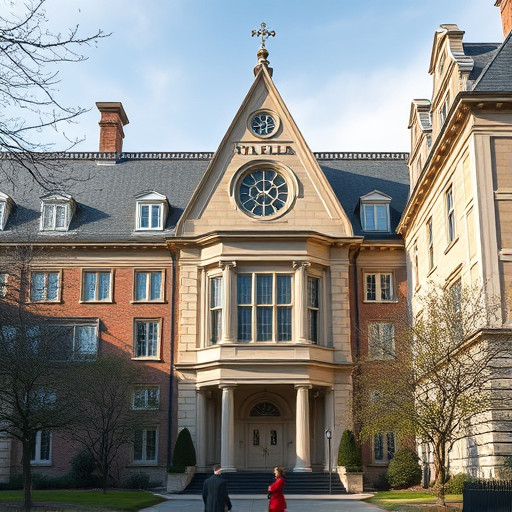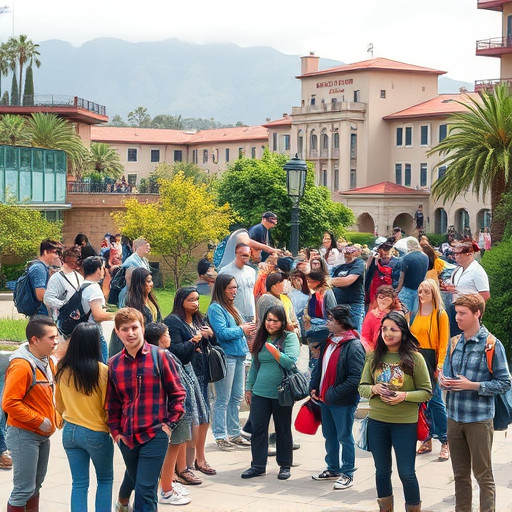Yale University – Exploring One of the Oldest Universities in the U.S

Yale University: One of the oldest universities in the U.S. is renowned for its rich history, academic rigor, and influential alumni. Established in 1701, it has cultivated a legacy that intertwines with the very fabric of American education and governance. As we delve deeper into this prestigious institution, we will uncover its extraordinary academic programs and its role in shaping leaders across various fields.
Yale University: One of the oldest universities in the U.S.
Yale University stands as a testament to the evolution of higher education in America. Founded in the colonial era, it has witnessed historical transformations and has maintained a commitment to excellence that is reflected in its diverse academic offerings and vibrant campus life. This section aims to explore the historical context of Yale, its significance in contemporary academia, and its ongoing contributions to society.
A Brief History of Yale University
Yale University was established by a group of Congregationalist ministers in Saybrook, Connecticut, in 1701. Originally named the Collegiate School, it aimed to educate clergy and lay leaders. The school moved to New Haven, Connecticut, in 1716 and was renamed Yale College in 1718 to honor Elihu Yale, a Welsh merchant whose charitable donations helped advance the institution.
Throughout its history, Yale has played a critical role in shaping American education. It was among the first institutions to adopt the liberal arts approach, emphasizing a broad-based education instead of solely focusing on religious studies. Over the years, Yale expanded its curriculum to include sciences, law, medicine, and the arts, becoming one of the country’s most prestigious educational establishments.
Yale’s Impact on American Society
As one of the oldest universities in the U.S., Yale has produced numerous influential figures who have left indelible marks on American society. From U.S. presidents like William Howard Taft and George H.W. Bush to prominent authors such as Sinclair Lewis and Toni Morrison, Yale’s alumni span various sectors, including politics, literature, science, and business.
The university has also been a pioneer in social change, contributing to civil rights movements and advocating for equality. Yale’s commitment to public service is evident through its extensive outreach programs and partnerships with local communities, reinforcing its position not just as an academic institution but as a vital participant in societal development.
The Campus and Culture at Yale
Yale’s campus, known for its stunning Gothic architecture and sprawling green spaces, serves as a hub for student activities and engagement. With over 500 registered student organizations ranging from cultural groups to political clubs, Yale fosters an inclusive environment that encourages exploration and social interaction.
The Yale daily experience is characterized by vibrant discussions and intellectual debates, often occurring in informal settings. The culture of collaboration extends beyond the classroom, as students engage with faculty members and tap into the wealth of resources available through the university’s libraries and research centers.
Known for its exceptional academic programs.
Yale University: One of the oldest universities in the U.S., is distinguished by its rigorous academic programs that challenge students to think critically and innovate. Its unique blend of tradition and modernity allows for an enriching educational experience that prepares students to excel in various fields. This section will highlight the variety of academic offerings and what makes them exceptional.
Undergraduate Programs
Yale’s undergraduate program is anchored by the liberal arts philosophy, encouraging students to pursue a multidisciplinary curriculum. Students can choose from more than 80 majors, allowing them to tailor their education according to their interests. The emphasis on critical thinking fosters a strong foundation for analytical skills that are essential in various career paths.
Additionally, the residential college system sets Yale apart from many other institutions. Each undergraduate is assigned to one of the twelve colleges, creating smaller communities within the larger university setting. This structure promotes camaraderie and mentorship, ensuring that every student feels connected and supported throughout their academic journey.
Graduate and Professional Studies
Beyond undergraduate offerings, Yale boasts highly respected graduate programs in law, business, medicine, and the arts. The Yale Law School is consistently ranked among the top law schools in the nation, attracting aspiring lawyers who seek a rigorous education grounded in social justice and ethical considerations.
Yale School of Management distinguishes itself by focusing on educating leaders for both the private and public sectors. Its innovative curriculum emphasizes teamwork, global perspectives, and practical experiences, preparing graduates to tackle complex challenges in a rapidly changing world.
Research Opportunities
At Yale, research is considered central to the educational experience. The university invests significantly in research initiatives, providing students and faculty with access to state-of-the-art facilities and resources. Collaborative projects across disciplines enable students to engage in groundbreaking work that addresses real-world issues.
Undergraduate students are encouraged to participate in research early in their academic careers, often working alongside prominent faculty members. This hands-on experience not only enhances learning but also allows students to contribute meaningfully to their fields of interest.
International Perspective
Yale prides itself on fostering a global perspective within its academic framework. The university offers numerous study abroad programs, enabling students to immerse themselves in different cultures and gain invaluable international experience. Through partnerships with institutions worldwide, Yale prepares its students for an interconnected world, equipping them with cross-cultural competencies essential for success in today’s global society.
FAQs
What type of degrees does Yale University offer?
Yale University offers a wide range of degrees, including undergraduate Bachelor’s degrees, as well as graduate and professional degrees in various fields such as law, business, medicine, and the arts.
How competitive is the admission process at Yale?
The admission process at Yale is highly competitive, with thousands of applicants vying for a limited number of spots. Factors such as academic performance, standardized test scores, letters of recommendation, essays, and extracurricular involvement all play a crucial role in the selection process.
Are there scholarships available for students at Yale?
Yes, Yale offers need-based financial aid to ensure that students from all backgrounds can attend regardless of their financial situation. Yale has a long-standing commitment to affordability and provides substantial financial support to qualified applicants.
What extracurricular opportunities are available at Yale?
Yale boasts an extensive array of extracurricular activities, including student organizations, sports teams, theater productions, and musical ensembles. Students are encouraged to participate actively in campus life, which enriches their overall educational experience.
Does Yale University have a strong alumni network?
Yes, Yale has an extensive and influential alumni network. Graduates often remain engaged with the university and provide mentorship, networking opportunities, and resources to current students, facilitating professional connections in various fields.
Conclusion
Yale University: One of the oldest universities in the U.S., continues to serve as a beacon of academic excellence and innovation. Its storied history, combined with its commitment to fostering a diverse and intellectually stimulating environment, positions it as a leader in higher education. Whether through its exceptional academic programs or its cultural contributions, Yale remains dedicated to nurturing the growth of future leaders who will shape the world. As we reflect on its past, we recognize that Yale’s influence will undoubtedly persist, inspiring generations to come.



Leave a Comment